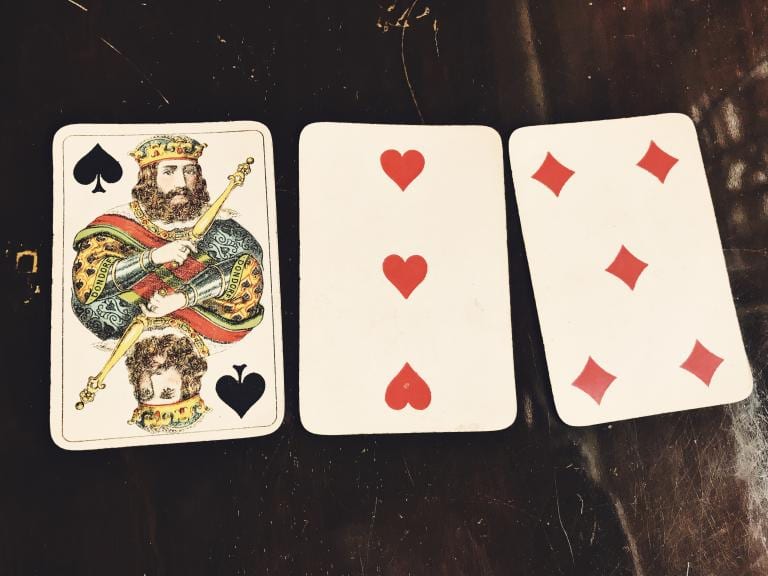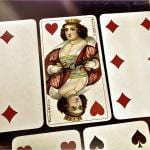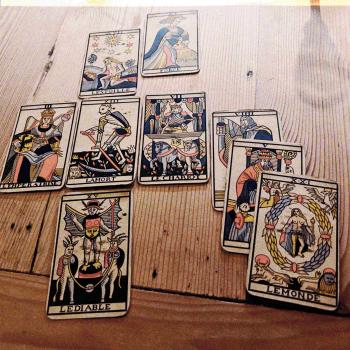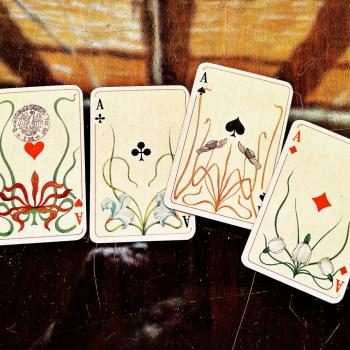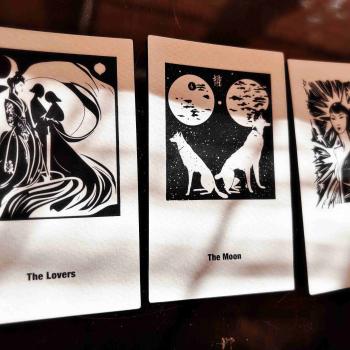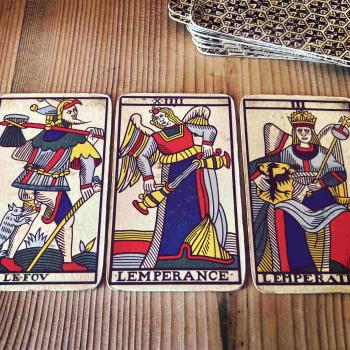
Since I like math and statistical systems, the latter mainly because in predictive calculations comes up as counter-intuitive, I see a ton of similarities between how scientists approach probability and how analytical fortune-tellers do the same. Even the ones who are close to the state of illiteracy. I’ve met a few of those in my time in Romania.
In my cartomancy tool box, playing cards top the list of which cards are the most efficient when it comes to answering questions about risk. There’s zero long-windedness here, what with the tight focus on the function of the 4 suits led by the court cards, long-windedness being the danger when we deal with ‘picture’ cards or cards that represent types in a loose way. To give an example, while no one can be in doubt as to just what bloody job the King of Spades performs, one can sit and stare at the possibility for the same when we look at the trumps of the Tarot cards.
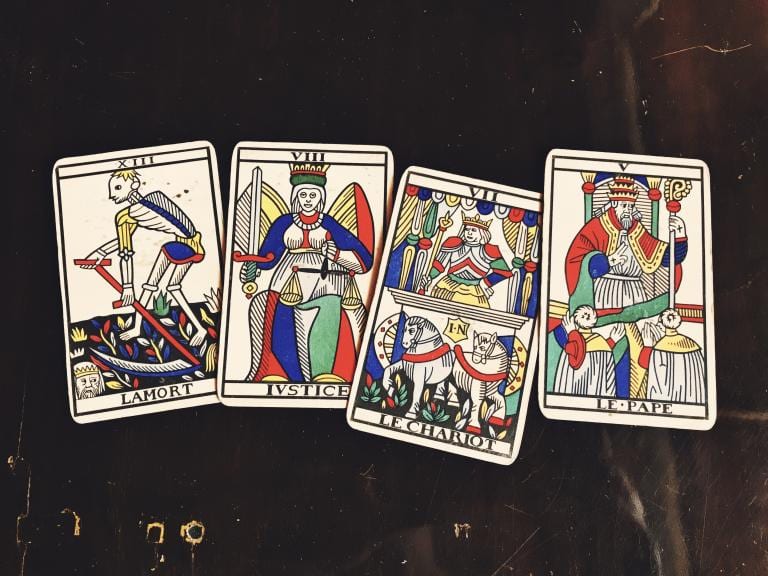
The blade cards, Death and Justice, are obvious candidates for our King of Spades analogy. But how about the Charioteer? Isn’t this one returning victoriously from the battle field, with victory representing the very premise for the bloody affair that leads to success? Just think about it. In our world, how likely is it for you to succeed unless you start chopping off the heads of the competition? You’re welcome to ask me about how such acts are our daily bread and butter even in an environment called ‘the university.’ I’m so laughing. The higher up I climbed the academic ladder, which was pretty high at one point, the more ruthless bastards I’ve encountered. Then, the Pope. ‘Bloody hell,’ this one says. ‘Unless you do what I tell you, your ass will burn.’ Marvellous war stories of the twisted kind. Juicy characters to identify with, just as we like it.
Not so with the playing cards. Things are clear-cut here. Context is still king, and we deliver an answer entirely according to the wording of the question, but the nuance that the playing cards can pack is often an incisive marker of how and where exactly the answer is robust, rather than fragile.
I use playing cards when I want to go beyond mere storytelling or mechanisms of identification. The detective work with playing cards is often sharper than when we use other cards, such as the Tarot or the Lenormand Oracle. This is so simply because the style is tighter. I squint a lot when I read playing cards. The brain is at work double time, as there’s no window here for reading emblematic symbols. There’s even less of ‘this means that’ when we read the playing cards. When you stare at 3 hearts and 5 diamonds you don’t immediately think: ‘Birds. Communication. Punctum.’ There’s none of that sense of finality here that can easily render you in the darkest of the ditches, if your reductionism turns out to be quite wrong.
Let the King of Spades initiate the string, and you’re with the idea of war communications enhanced by blades polished like diamonds. This King will have his way, which is bad news for you, if you’re in it for friendship.
‘But isn’t it this difficult?’ students who are afraid of the playing cards often ask. ‘It’s difficult,’ I say. ‘But only to the extent that you don’t like to squint, kicking your habits upstairs for larger vistas and more air.’
On the question of how difficult, think about why playing cards are still the most favorite among seasoned diviners. It’s not because they are difficult. Rather it’s because of how playing cards hit the nerve of what is risked in the game.
Think about all the questions that others come to you with. Aren’t they all full of risks? Perhaps you’d like to learn how to use a tool that addresses risky business in a most elegant, classic, and quite precise manner. The Playing Cards Foundation Course is open for registration. As I’m archiving all my foundation courses, this is the last run.
♠
Stay tuned for cartomantic courses at Aradia Academy.

